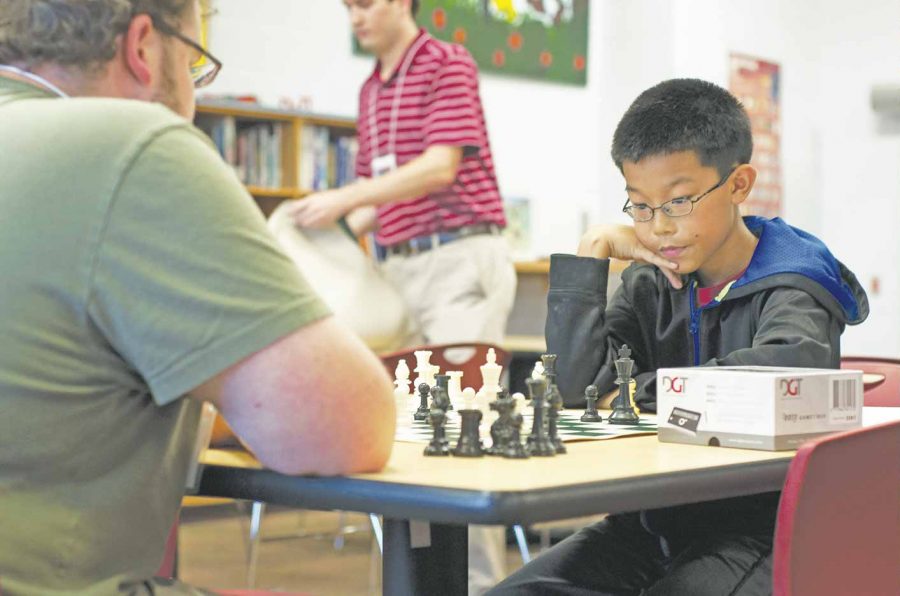The silence was deafening. Jenna Jackson and her fellow chess teammates had suddenly transformed from a bunch of kids milling around to serious players debating their every move.
Jackson, a seventh grader at the Tuscaloosa Magnet School, is part of the Every Move Counts program. Designed to teach kids various skills through chess, the program is a University Honors seminar that meets twice a week to instruct mentors in the art of teaching chess and then requires two hours a week working with kids in a school.
Every Move Counts started in spring of 2010 with just 12 sixth grade students being taught by three students from The University of Alabama. Now, this fall, 54 UA students help teach 280 kids ranging from second to 12th grade from seven different Tuscaloosa city schools. Courtney Stokes, a research project coordinator for the Center for Ethics and Social Responsibility, primarily deals with this program and said that the hardest part is adapting to the increasing growth of interest in the program.
“We’re trying to make sure we can keep up with the demands in the schools and the demands in the children,” Stokes said.
Jackson, who has been a part of the program for about three years, took on chess to have a hobby. She said she notices how she pays more attention in class and chess has taught her discipline. Every day after the class she goes home and teaches her mom what she learned. She’s not really competitive about chess; she just sees it as a fun game.
“My favorite part is in the middle of the game where it can really be either player that wins,” Jackson said.
The seminar incorporates first-time mentors from a variety of chess backgrounds collectively learning how to teach chess with returning volunteers teaching the mentors and overseeing the classes in the schools. Josh Konantz, a senior majoring in biology, is a lead volunteer that has been with the program for several years and is now teaching mentors. He said teaching the mentors is more intimidating than teaching kids, but there is a difficult balance when dealing with the students in the schools.
“It’s a balancing act between trying to teach them as much as you can without boring them or burning them out,” Konantz said.
Coming from a small chess background, Luke Moore, a junior majoring in finance, did not know what to expect when signing up for the program. He said he has been able to get to know the kids and get to know them outside of just talking to them about chess. He said that spending time with the kids is the most important aspect and it means a lot to them.
“The most gratifying thing is when I see how much it means to them that we come each week,” Moore said. “I learned that reaching out and helping others is really gratifying and obviously means a lot to them.”
The students are currently preparing for their Nov. 12 chess tournament happening at Oakdale Primary School. The chess teams will meet for five rounds of games. Each team has eight students that tested onto the team and gets points for each member that wins a game. At the end, whichever team has the most points takes the trophy. Ayush Kotru, a fourth grade student at the Tuscaloosa Magnet School, has been to a tournament before and is excited and nervous, but ready for the tournament.
“I like that you don’t know who you’re going to face or the challenges ahead of you,” Kotru said.
Although the program focuses on teaching chess, other vital skills go hand in hand with the game. Stokes said that math skills increase from the grid format of the board, vocabulary grows as kids learn names for moves and communications skills are developed in a nonverbal setting. The academics fall into place as chess also develops discipline, focus and critical thinking.
“Our goal is to work with as many kids as possible, introducing chess and teaching them that every move counts in your life, in the classroom, at home, and with friends,” Stokes said. “We teach them to stop and think because every choice, every move, is going to have an effect later on.”









